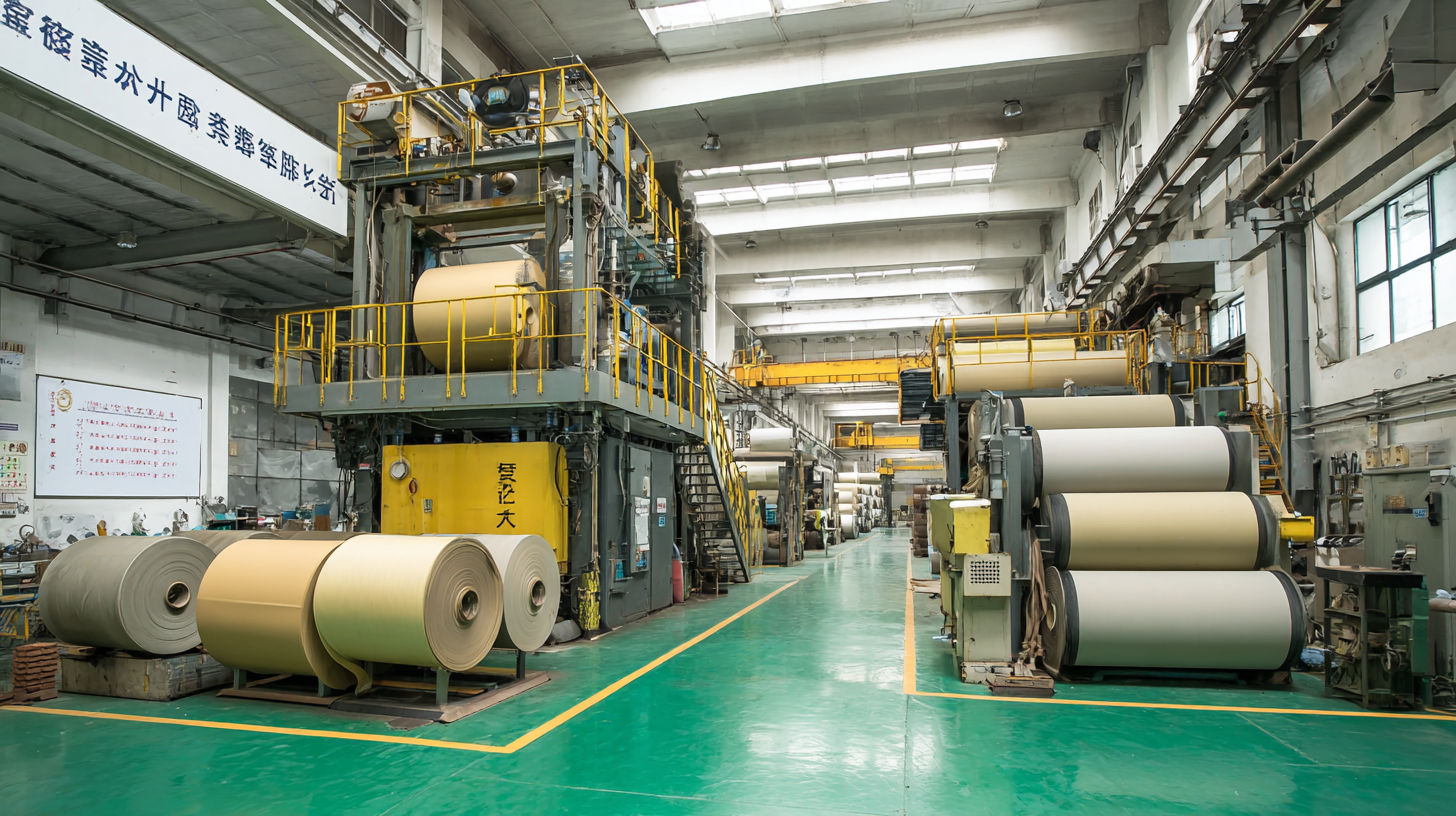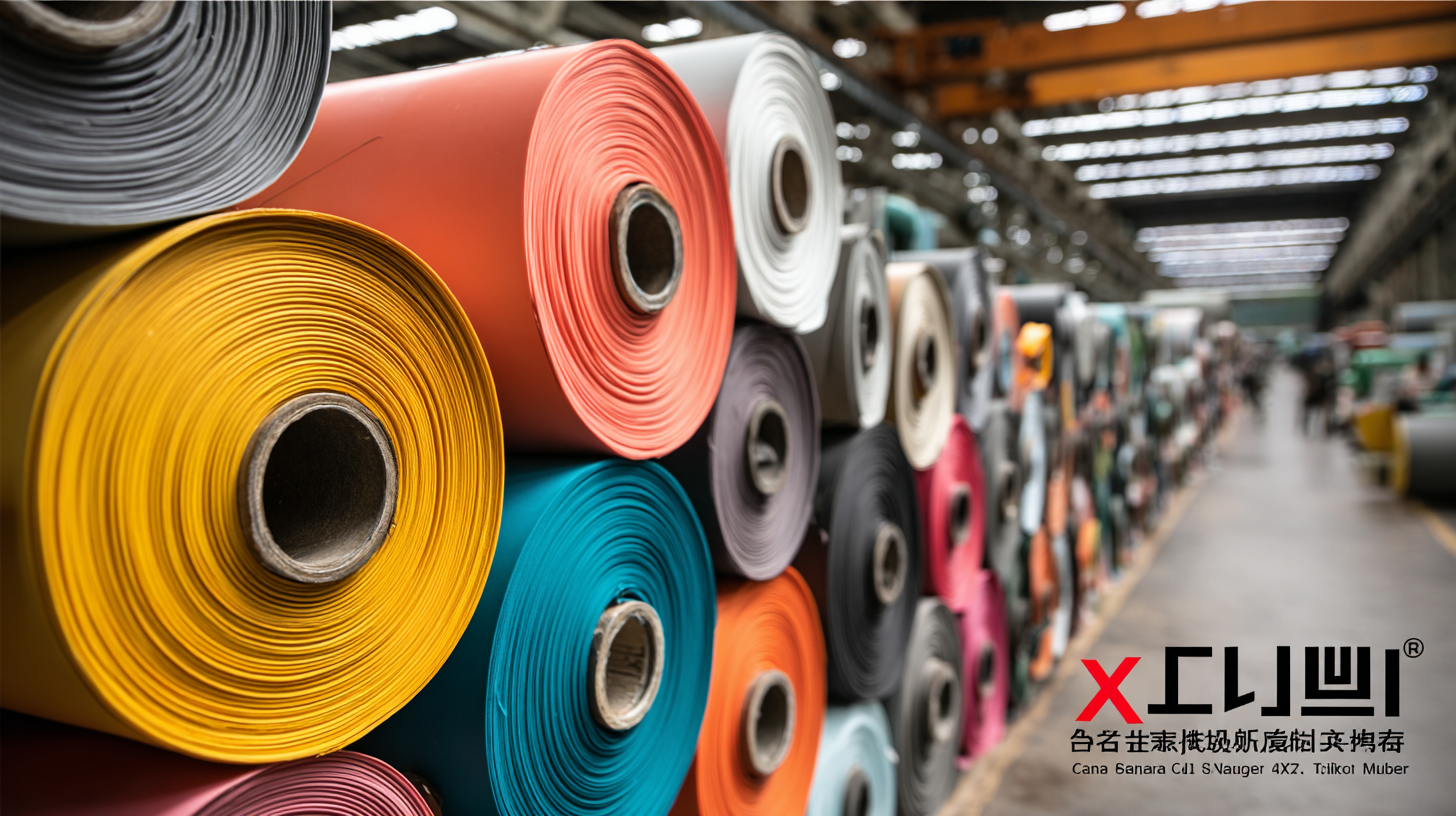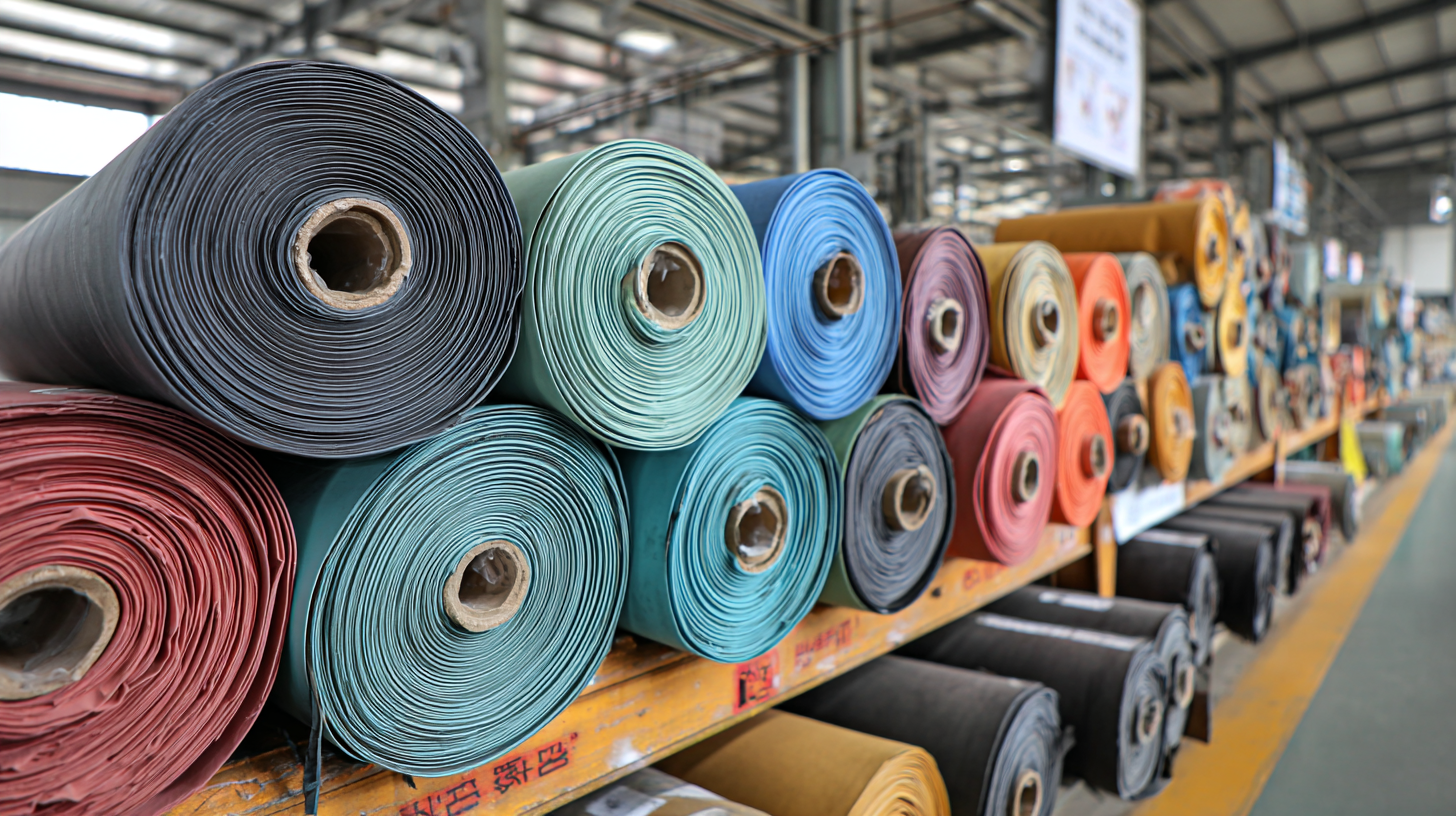

In the dynamic landscape of the rubber sheet industry, navigating the challenges posed by industry standards is crucial for manufacturers aiming to secure their position as leading China Rubber Sheet Roll manufacturers. With the global demand for high-quality rubber products on the rise, these manufacturers must not only comply with stringent local and international regulations but also adapt to evolving market needs. This blog will explore the various industry standards that govern the production of rubber sheet rolls in China, delving into the implications for quality control, sustainability, and innovation. By understanding these challenges, manufacturers can leverage best practices to enhance their competitiveness and ensure they meet the expectations of both domestic and international customers. Join us as we uncover the strategies that can help China Rubber Sheet Roll manufacturers thrive in this complex and rapidly changing environment.

In the realm of rubber sheet roll manufacturing in China, adherence to key industry standards is not merely beneficial but essential for maintaining competitiveness and ensuring product reliability. Manufacturers must familiarize themselves with established standards such as ASTM, ISO, and GB norms, which govern material quality, safety, and performance parameters. Understanding these guidelines allows manufacturers to align their processes with global expectations, thereby enhancing their marketability and customer trust.

Moreover, the diverse applications of rubber sheet rolls necessitate compliance with specialized standards tailored to specific industries, including automotive, aerospace, and construction. For instance, automotive standards emphasize durability and resistance to harsh environmental conditions, while construction applications might prioritize factors like thermal stability and fire resistance. By identifying and integrating these key standards into their production lines, Chinese manufacturers can not only improve operational efficiency but also minimize risks associated with non-compliance. This strategic focus on quality assurance positions them favorably in the competitive global marketplace, fostering innovation and sustainability in their manufacturing practices.
Manufacturers of rubber sheet rolls in China are increasingly confronted with compliance challenges that impact their ability to meet industry standards. As regulatory frameworks evolve, adhering to local and international laws becomes paramount. Companies must navigate a landscape filled with specific requirements, from environmental regulations to consumer safety mandates, which can vary significantly across different markets. These complexities often necessitate not just a reactive approach, but a proactive strategy to remain compliant while maintaining the quality and competitiveness of their products.
One of the most significant hurdles is the need to implement robust compliance management systems that keep pace with the rapid changes in regulations. This includes investing in technology solutions that enhance transparency and facilitate traceability throughout the supply chain. Furthermore, the pressure to protect user data and maintain corporate governance demands that manufacturers stay informed about the latest regulatory updates. By prioritizing compliance, manufacturers can not only mitigate risks but also leverage their adherence to regulations as a unique selling proposition in a crowded market.
| Dimension/Characteristic | Challenge | Impact Level | Potential Solutions |
|---|---|---|---|
| Material Quality | Difficulty sourcing high-grade raw materials | High | Build partnerships with reliable suppliers |
| Regulatory Compliance | Keeping up with international compliance standards | Very High | Regular training and updates for compliance teams |
| Production Efficiency | Balancing production volume with quality | Medium | Invest in automation technologies |
| Environmental Regulations | Adapting to new environmental laws | High | Implement eco-friendly practices |
| Market Competition | Increased competition from both local and international players | Medium | Differentiate through innovation and R&D |
In the competitive landscape of rubber production, manufacturers must prioritize quality control to ensure their products meet industry standards. Effective solutions for improving quality control are vital for top China rubber sheet roll manufacturers aiming to enhance their reputation and customer satisfaction. Implementing robust inspection processes at various stages of production can significantly reduce defects and ensure that each rubber sheet meets the required specifications. Utilizing advanced technology, such as automated quality inspection systems, helps to identify inconsistencies early in the production process, saving both time and resources.
Furthermore, fostering a culture of continuous improvement within manufacturing teams can lead to innovative practices that enhance overall quality. Regular training sessions on the latest quality control techniques and industry standards equip employees with the knowledge to address potential issues proactively. Additionally, collaborating with suppliers to ensure high-quality raw materials can have a significant impact on the final product. By focusing on these effective solutions, rubber manufacturers can navigate the challenges of industry standards while maintaining the highest level of quality throughout their production processes.
In the competitive landscape of rubber sheet manufacturing, embracing innovative technologies is paramount for manufacturers striving to enhance production efficiency and product quality. Recent data from a 2023 report by Market Research Future indicates that the global rubber sheet market is projected to reach USD 6.5 billion by 2028, with a compound annual growth rate (CAGR) of 4.8%. This growth is driving manufacturers to explore advanced technologies like automation and smart manufacturing solutions, decreasing production time while maintaining stringent industry standards.
One noteworthy technology shaping the industry is the implementation of Industry 4.0 concepts, which incorporate IoT devices and AI analytics to optimize manufacturing processes. According to a study by Technavio, investments in digital transformation for rubber manufacturers are expected to grow by 15% annually, fundamentally altering production workflows. By leveraging these innovations, manufacturers can reduce waste, improve quality control, and respond swiftly to market demands, ultimately positioning themselves as leaders in the fast-evolving rubber sheet sector.

Collaborating effectively with regulatory bodies and industry entities is crucial for rubber sheet roll manufacturers in China to navigate industry standards challenges. First and foremost, establishing open lines of communication with these organizations can help manufacturers stay updated on the latest regulations and compliance requirements. Regular meetings or consultations with regulatory officials can provide insights into changing standards and help address any potential concerns before they escalate into larger issues.
Additionally, joining industry associations can significantly enhance collaboration efforts. These organizations often serve as a bridge between manufacturers and regulators, facilitating discussions on best practices and innovative solutions to common challenges. By participating in workshops, seminars, and networking events hosted by these associations, manufacturers can gain valuable knowledge and build relationships that foster mutual understanding and support among industry stakeholders. This proactive approach not only aids compliance but also promotes a culture of quality and safety within the industry, ultimately leading to improved products and customer satisfaction.